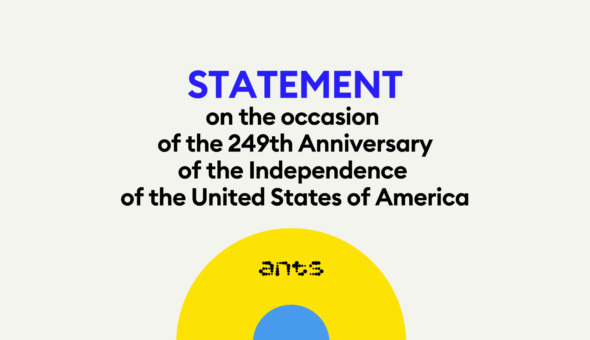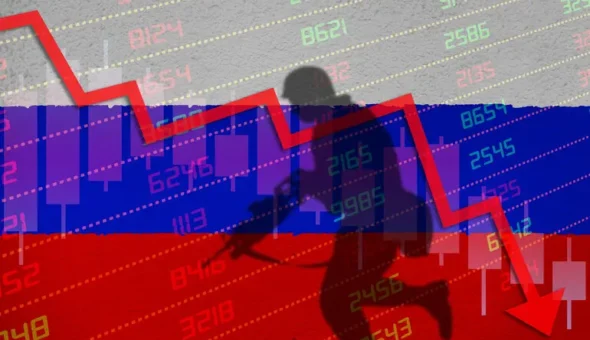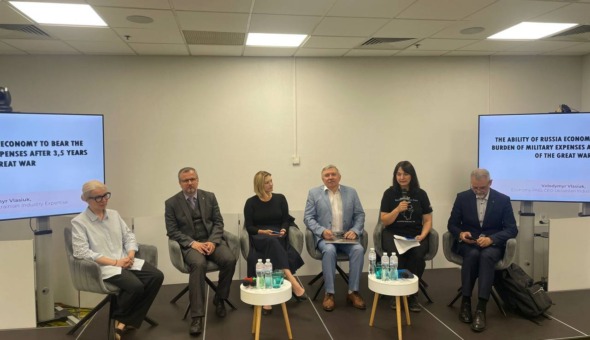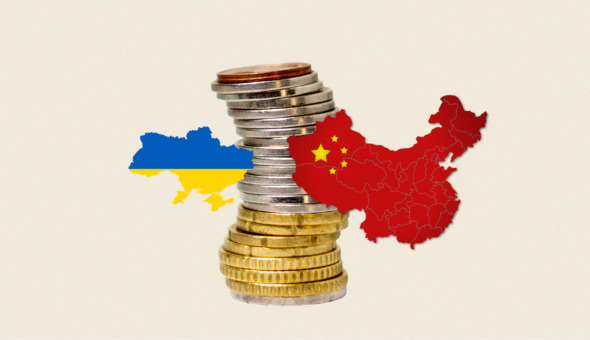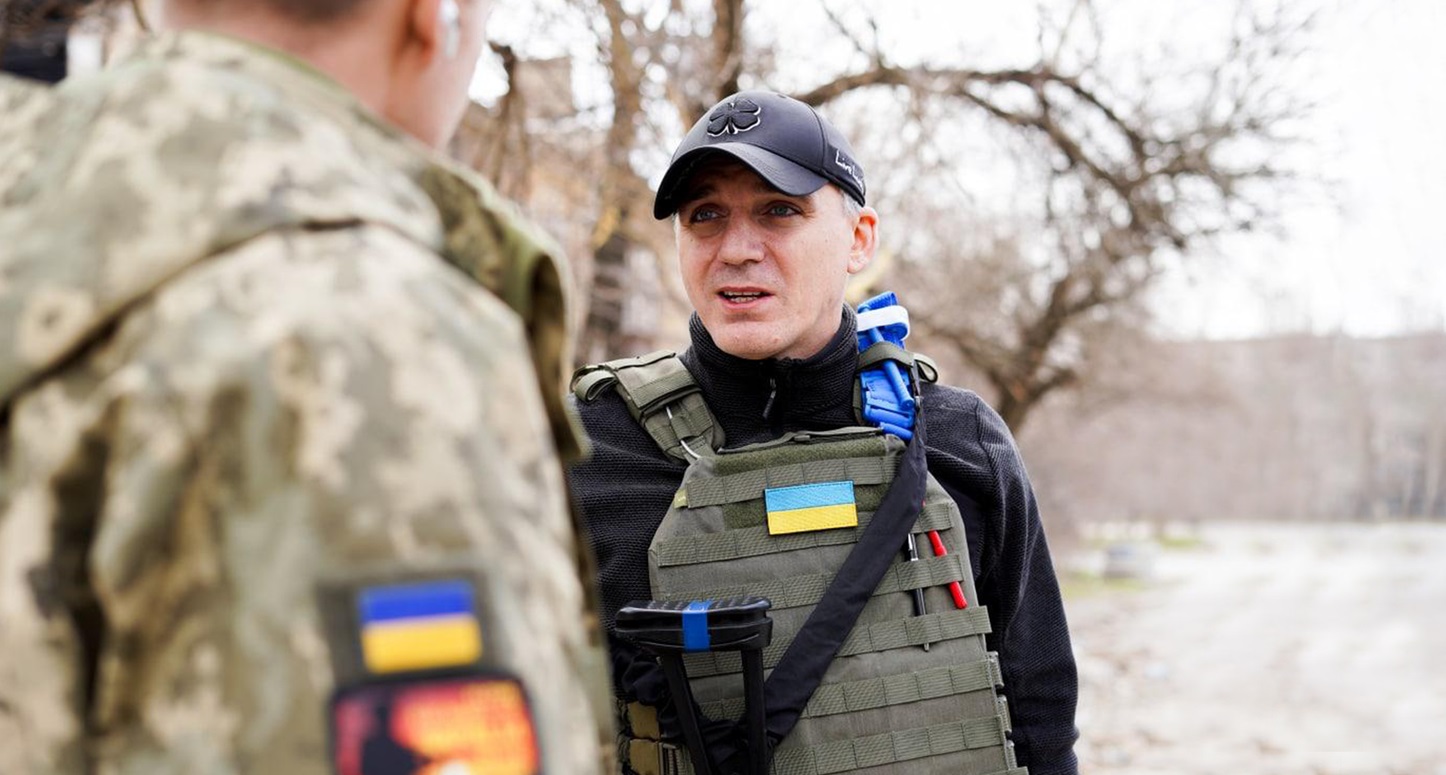
Mykolaiv is the city where they stopped the enemy on the approaches and held the front. Mykolaiv is a hero city and a city of heroes. Before the full-scale invasion, 460,000 people lived here; now there are now about 350,000, including displaced persons. Until February 2023, Mykolaiv will be a port city, a city of engineering, but now the situation here is not easy: 99% of enterprises don’t work, and the townspeople are still suffering from shelling.
During the online webinar “Reconstruction of cities, destroyed by war: experience, challenges, and opportunities”, the mayor of Mykolaiv, Oleksandr Senkevych, shared the experience of their community.
“We made an assessment of the destroyed objects. 1070 private houses that affected. About 100 houses were completely destroyed. Now in Mykolaiv, there is no talk of restoration. Today we deal with issues of support and survival.”
Mykolaiv and water supply
Since April 12, 2022, the city has been living without a central water supply. Two pipes with a diameter of 1.4 m leading from the Dnipro River to the city were blown up by the russians. This left Mykolaiv without water.
“As you understand, you can live without a store, school, or kindergarten, but you cannot live without water. That’s why I gave the order to make wells at all the objects of the social sphere, and, in fact, it helped us in the first month. After that, we ran two pipes from the South Bug River, but that water is salty and destroys our pipes. However, we have it for everyday needs – bathing, for example, but not for drinking or eating. Today we are thinking about how to make an alternative way of supplying water to the city,” says the mayor.
Thanks to our work with foreign partners, we received water purification systems. As of today, points for issuing purified water to citizens are working. Due to the lack of water, problems with heating are also relevant. Yes, they could not let salt water into the central heating system.
“Almost 130,000 of our residents use centralized heating services. Therefore, we had to separately create opportunities for water purification to replenish heating systems, and we passed this heating season without problems or large losses.”
Boilers were built in the city during the heating season. They also kept mobile boiler rooms from foreign partners, which allow for the repair of central heating networks.
Rebuilding – build better
Currently, they cannot carry out capital repairs in Mykolaiv due to constant enemy shelling. However, the community is already thinking about how to rebuild the city after the war.
“We decided to think about what we could do with our city after the war, based on the principle: while rebuilding, build better. It is necessary to consider the war not only as a tragedy that happened in our country, but also as an opportunity to rethink our communities, how they will continue to develop after the war, and how we will restore them,” says Senkevych.
It is worth noting that Mykolaiv and Kherson are two cities that became pilot projects for the creation of a new General Plan. These are UNEC projects.
“This isn’t just a document; this is urban planning documentation that we are used to using in Ukraine. This will be a strategic document that will influence the development of the city, its strategy, and its recovery plan. It will become the basis or visualization of what the city should become.”
20,000 citizens took part in the discussion of this plan. This master plan raises key questions.
Five projects were chosen for partners who will help with restoration:
- construction of a new neighborhood
- industrial zone
- innovation and tech startups
- green areas
- cultural heritage
Currently, three phases are seen in the work:
- provision of basic needs
- quick recovery
- 20-30 years after
To work with sponsors, Oleksandr Senkevych advises communities to prepare a detailed checklist.
“We have a table by directions. When partners come, we have a ready list of what is needed. Since the first day of the war, I have said that money is not needed. They did not receive a penny for equipment or pipes. We hand over documentation; partners buy it and control it themselves. It is important because it facilitates local self-government. Ensures transparency and accountability. It is important to restore its reputation. Aid isn’t about money, but about the benefits that the community receives.”
According to him, in order to not only return but also keep people in the city, it is important to restore the infrastructure.
“It is important to create a program and economic levers for the development of the economy in the de-occupied territories and those most affected by russian aggression. We urge donors to invest in these regions.”
The National Interest Advocacy Network Project “Rebuilding Ukraine Together” is implemented with the support of the European Union and aims to establish effective processes of interaction between all key agents of the Restoration of Ukraine: state and local authorities, international donors and partners, expert and professional communities, representatives of civil society.
